Thank you for joining uspublished at 18:26 BST 10 August 2022
Today's reporting was brought to you by Claudia Allen, Nathan Williams, Dulcie Lee, Malu Cursino, Nathan Standley, Arryn Moy, Oliver Slow and Alys Davies.
Many households are already falling behind on energy payments, even before bills go up further in October, and then January
It's now being estimated that the average household could be paying £355 a month next year, instead of £164 a month currently
Consumer expert Martin Lewis says it's "a national crisis" on the scale of the Covid pandemic
But Education Secretary James Cleverly says there will not be any major support packages until parliament returns in September
Tory leadership candidate Liz Truss has dismissed calls to agree immediate plans with her rival Rishi Sunak and outgoing PM Boris Johnson
Citizens Advice meanwhile says: "Every day we hear from people who can't afford to turn the lights on or cook their kids a hot meal"
Top ministers are meeting energy giants on Thursday to discuss what can be done
Edited by Nathan Williams
Today's reporting was brought to you by Claudia Allen, Nathan Williams, Dulcie Lee, Malu Cursino, Nathan Standley, Arryn Moy, Oliver Slow and Alys Davies.
We're ending up our live coverage for the day, thank you for joining us. Here's a round-up of the latest developments in the cost of living crisis:
Michael Race
Business reporter, BBC News
Energy bills could increase before the expected rise in October, the UK's energy regulator has revealed.
Ofgem and industry body Energy UK said it was "possible" for suppliers to raise direct debits in advance of the new cap on energy prices kicking in.
The warning comes as consumer expert Martin Lewis said any increase in the price cap, to be announced on 26 August, "crystallizes the direct debits going up".
British Gas told the BBC it wouldn't put up prices before October.
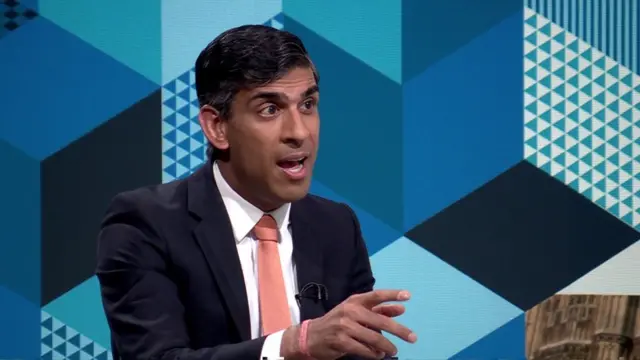
Rishi Sunak says he would "go further in supporting those families that most need our help" with rising energy costs.
He told the BBC’s Nick Robinson that he would rather lose the Tory leadership race than "win on a false promise".
His rival Liz Truss is pledging an emergency Budget with tax cuts, but he plans targeted payments to pensioners and those on low incomes, who may pay little or no tax, adding that was a "moral responsibility".
Their interview airs at 19:00 BST on Wednesday on BBC One – watch here and read more here.
 Rajdeep Sandhu
Rajdeep Sandhu
Political Correspondent
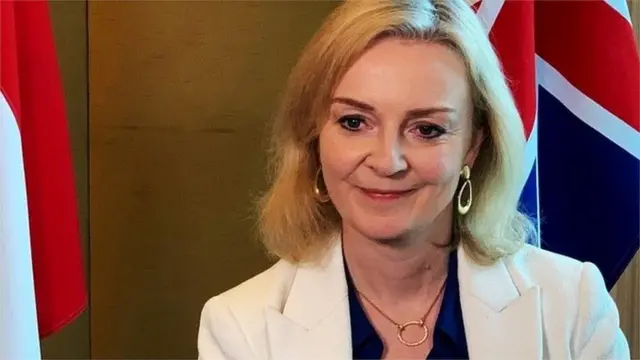 Image source, Reuters
Image source, ReutersLiz Truss is trying to appeal to two different electorates at the same time.
The first and arguably most important - right now - is the Conservative membership.
Her message of tax cuts seems to be going down well with the people who will decide the next prime minister.
But she'll also have one eye on the future electorate she might one day face - the general public and those voters who gave the Conservatives a chance last time and might not give them a second one if they are struggling with day-to-day costs.
That might explain why Liz Truss' language has been very careful in recent days.
Because while she is convinced tax cuts are the way to help the economy grow, she isn't categorically ruling out direct support or 'handouts' to those who are vulnerable.
She's left herself enough room to change her mind in the future if she does become PM and the growing calls for financial help become deafening.
Liz Truss says she wants to give people the power to "keep more of their own money" and to bring in tax cuts to boost economic growth. In an interview with London’s Evening Standard, external, the foreign secretary pledged to do "all I can to help" people facing rises in their cost of living.
If she becomes PM next month, Truss plans an emergency budget and has said she would cancel the National Insurance rise, put forward by former Chancellor Rishi Sunak, her leadership rival.
She pledged, in her Standard interview: "I can assure you that I will do all I can to help households across Britain."
 Simon Read
Simon Read
Personal Finance Reporter
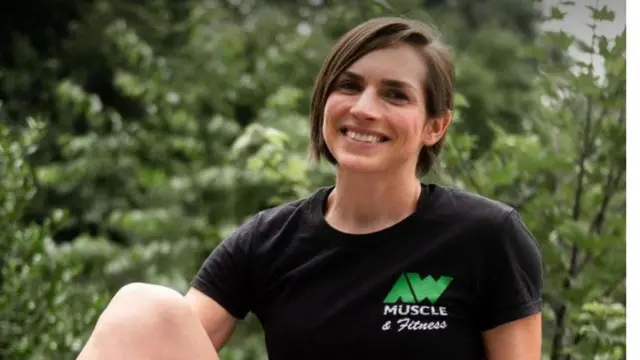 Image source, Dan Williams, Take your shot
Image source, Dan Williams, Take your shotGym owner Emily Wilkinson says she's facing a "double whammy" of rising prices both at home and for her business, which is "fighting for survival".
Emily, who runs the gym with her husband in Macclesfield, says that just as her company was recovering from Covid, she was hit with an energy bill for £1,000 per month, up from £480.
"That was in October 2021, six months before the energy price cap increase. On 24 September, our electricity standing charge will increase by 818% per day," she tells the BBC, urging the government to take action to support small business owners.
She says many businesses like hers can't risk passing on the price rise to customers, who could go elsewhere.
"The general public think it's all over now Covid restrictions have been dropped, but we feel like the fight is only just getting started," she says.
 Chris Page
Chris Page
Ireland correspondent
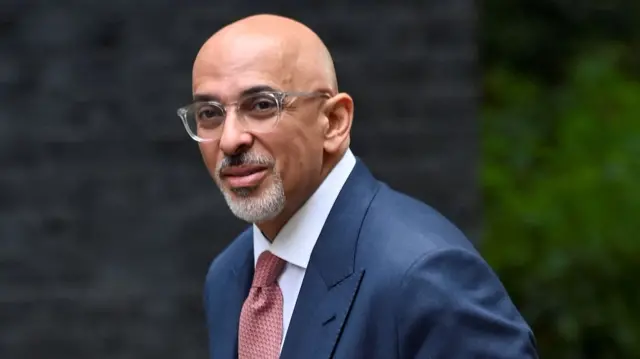 Image source, Reuters
Image source, ReutersChancellor Nadhim Zahawi says he "will not rest" until a way is found to deliver the £400 energy discount to households in Northern Ireland.
Payments will begin in Great Britain in October, but there is uncertainty as to how the money can be distributed to people in Northern Ireland because of the current absence of the devolved government at Stormont.
Zahawi has met two caretaker ministers in Belfast, and the local utilities regulator.
Speaking afterwards on a visit to a business in Antrim, he said there had been a "collective agreement we can do this" and that a "pragmatic solution" was the way forward.
He said he wanted to “keep his promise" that households in Northern Ireland would get their share of the money earmarked for the whole of the UK, and added that he wanted to be "swift".
Read more here.
The UK is facing inflation of up to 13% in the coming months. But in the 1970s, inflation rapidly increased to more than 25% due to rising oil prices and strong wage growth.Inflation was then brought largely under control for the next few decades, despite some rises since 2008 related to the global financial crisis and more recently the Covid pandemic.
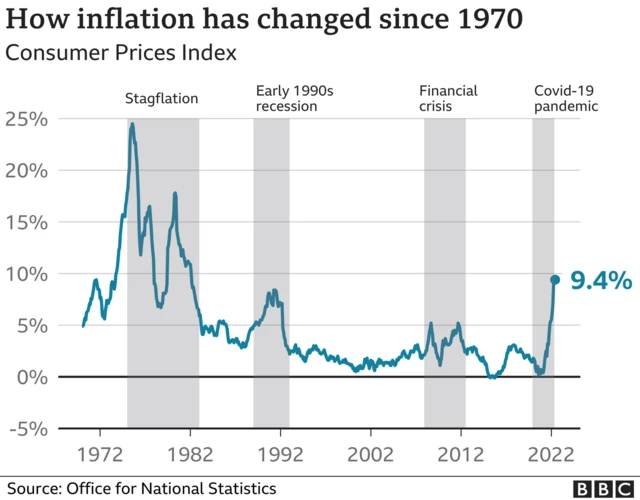
Last week, the Bank of England predicted that the cost of living could increase by more than 13% in the coming months, with high energy prices one of the main reasons behind the rise.
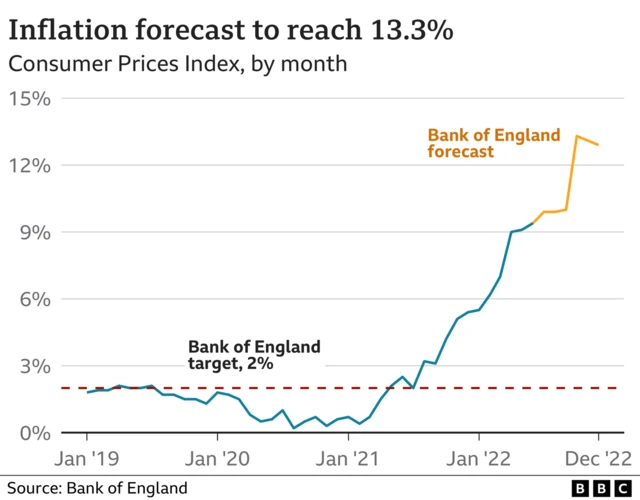 Image source, .
Image source, .In addition to increased energy bills, consumers are also having to deal with rising fuel prices. Although costs have dropped slightly from the record highs seen at the beginning of July, current prices are still significantly higher than they were at the start of the year.
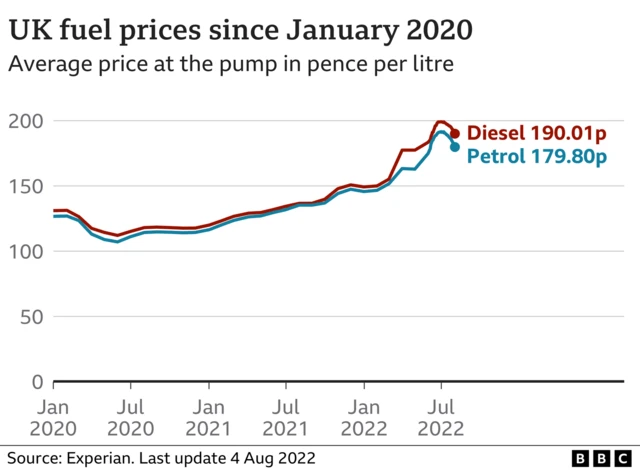
Michael Race
Business reporter
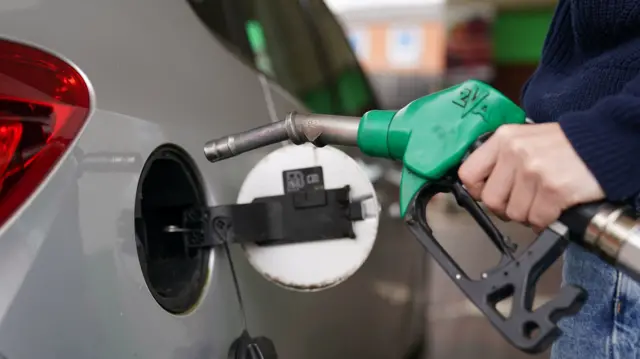 Image source, PA Media
Image source, PA MediaSupermarkets are not cutting fuel prices by as much as they should to match the "significant" drop in the cost of wholesale fuel, the motoring group RAC says.
It says the gap between pump prices and wholesale prices was the widest in almost a decade.
The price of petrol on Tuesday was about £1.76 per litre, but RAC analysts suggested that after factoring in VAT, fuel duty and the "generous" retailer margin of 10p per litre, the price should be no more than £1.62.
Fuel prices have hit record highs this year, but are slowly starting to fall.
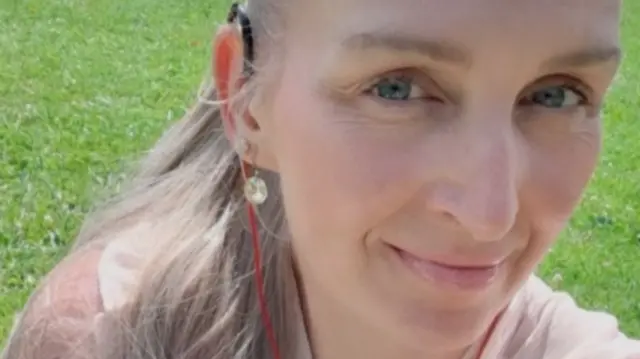 Image source, Dallas Lucas
Image source, Dallas LucasEnergy customer Dallas Lucas has been speaking to the BBC, saying the rise in energy prices has left her destitute.
"Right now I’m sitting on a mattress in my flat, because I don't have a bed or any furniture. I have been literally living on cereal and water, or looking through bins for food.
"I've sold all my furniture. I don't have a washer or a cooker anymore, just to try and keep up with the energy bills," she says.
Dallas added that her gas bill had increased five-fold in recent months, from £30 per month to £150.
"Bear in mind this is when we've had this massive heatwave, and my gas hasn't been on."
She accused the government of "playing Russian Roulette" with people's lives, adding it was "soul-destroying" to hear Boris Johnson saying it was down to his successor to tackle the issue.
Let's take a closer look at reports that the government's plans for this winter's energy crisis include a "reasonable worst case scenario" which would see organised blackouts for firms and households.
Earlier, the chief executive of Octopus Energy, Greg Jackson, said he thinks households are "safe" from possible blackouts.
Despite the "terrible price crisis", he said the UK had a more "resilient supply" than other countries in Europe.
"I think the reality is that domestic supply is safe and that industry - from time to time, sometimes driven by prices by the way - voluntarily reduce their energy usage," he told BBC Radio 4.
Reasonable worst-case scenarios are used by the government to make sure it can respond to more extreme situations - they aren't forecasts about what will happen.
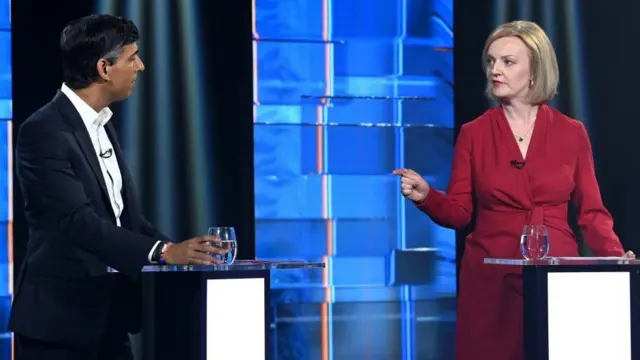 Image source, PA Media
Image source, PA MediaThere has been more blue-on-blue action, with the foreign secretary's team saying the former chancellor had "never" made a tax cut and again compared him to Gordon Brown, who served as a Labour chancellor and then PM.
A spokesperson for Liz Truss' campaign said: "Rishi Sunak wouldn’t know how people benefit from a tax cut because he has never cut a tax in his life.
"People didn’t vote for the Conservative Party to be subjected to old fashioned Gordon Brown- style politics of envy.
"You cannot tax your way to growth and Liz's agenda is to build a high wage, high growth, low tax economy that supports people. Liz believes in people keeping more of their own money, not Rishi’s socialist tax and spend which will lead us to recession."
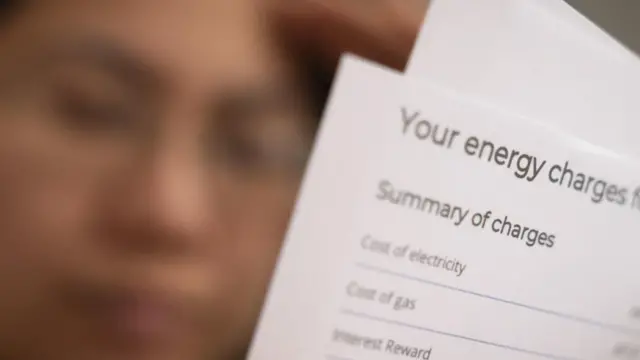 Image source, PA Media
Image source, PA MediaWe've been looking at the rising cost of living - and energy prices in particular. Citizens Advice says it's helped more than 47,000 people with energy debts so far this year.
Here's a look at what's happened so far today:
Meanwhile the two candidates vying to be the next prime minister have been setting out how they'd tackle rising energy costs:
Chancellor Nadhim Zahawi and Business Secretary Kwasi Kwarteng are to hold talks with energy giants tomorrow to discuss measures to ease the cost of living.
The chancellor says the Treasury is preparing ideas and options to help with the cost of living crisis for the next prime minister to consider.
Nadhim Zahawi says we have to "make sure we have the ideas and the options available to whoever becomes prime minister on 5 September".
He added the UK government had already allocated £37billion, and he would be focusing on how to "get it into people's accounts".
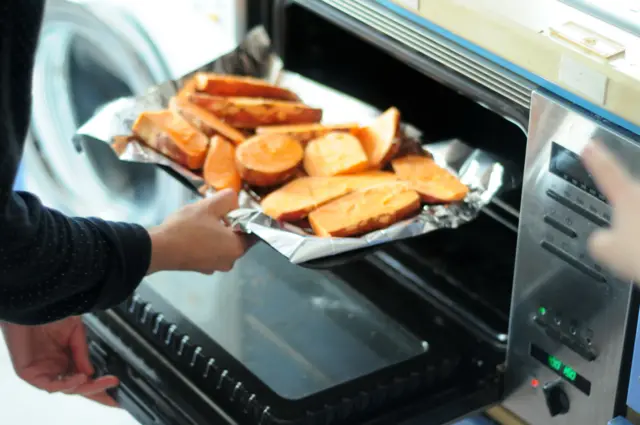 Image source, Getty Images
Image source, Getty ImagesIf you're looking for ways to reduce the amount of energy you use while cooking in the kitchen, here are some tips we've put together from Energy Saving Trust and energy companies:
Sam Gruet
BBC Newsbeat's cost of living reporter
 Image source, Paige
Image source, PaigePaige, from Gravesend in Kent, is on a key meter, which is a "pay-as-you-go" system so she pays for her energy for the day or week.
The 30-year-old says she used to pay £20 per week on gas, but that has now doubled.
And it is not just energy she is worrying about, with a water bill of £492 coming through and her provider telling her she was "in arrears even though I've never not made a payment".
"You almost get made to feel like you've done something wrong and you know, everybody's in the same situation," she says.
"I just find it really upsetting."
Paige has previously had to "postpone payments by a couple of weeks" because of the timing of her pay day.
"It's frustrating enough having financial worries without having someone on the end of the phone making you feel like a failure."
 Reality Check
Reality Check
Asked about her plans to tackle the cost of living crisis, Liz Truss said: "What I would do immediately is reverse the National Insurance increase, keeping more money in people's pockets, also have a temporary moratorium on the green energy levy to cut fuel bills."
National Insurance (NI) increased by 1.25p in the pound in April.
Reversing that would make no difference for anybody earning less than £12,570 a year because they don’t pay NI.
For someone earning £20,000 a year they would save £93 a year. Someone earning £30,000 would save £218.
The green levy is an amount the government makes energy companies add to bills to pay for things like schemes to help fund renewable energy and provide grants for insulation. Removing it would knock about £153 off an average annual dual fuel bill, according to the regulator Ofgem.
Analysts Cornwall Insight have warned that energy bills for a typical household could hit £4,266 a year, in January, up from £1,971 at the moment.
You can read more about the tax policies of the Tory leadership candidates here